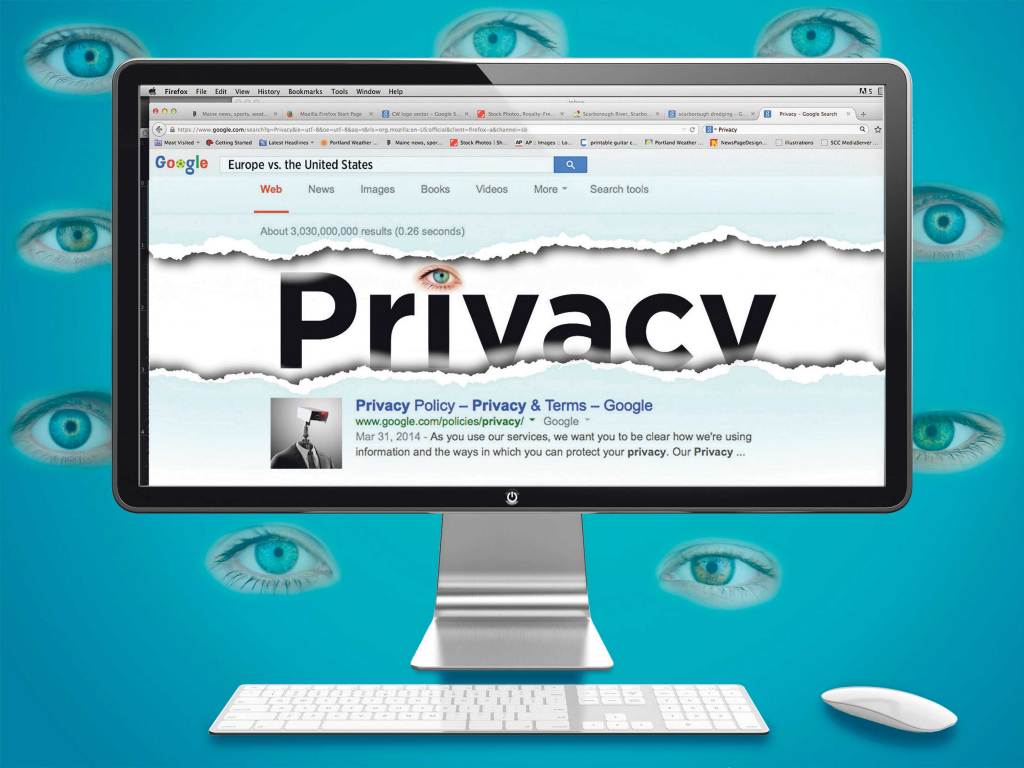BERKELEY, Calif. — Once, we came of age under the shadow of something called a Permanent Record. Nobody ever actually saw one, but as youngsters we understood we had to keep our own clean, since stains could do lasting damage.
Plainly, the idea of an authoritative, ineradicable ledger on individual behavior is a powerful one. Widespread, too. You see it in everything from the divine Book of Life to the gift list kept by Santa, who knows if you’ve been bad or good.
That permanent record meant somebody was paying attention, which was good, but it was also a dark and oppressive background presence, since it enabled even trivial sins to curse our futures.
Good thing it was largely mythic. Back then, actual record-keeping was spotty, and technology had zero ability to corral the manifold tracks that we each left into some all-knowing compendium.
No longer. Welcome to the digital age. Its mighty search engines have spawned a virtual permanent record for millions of individuals. It’s updated constantly, lasts forever, and is in full-time public view.
What gets in it and with what prominence – those are mysteries, depending on the alchemy of particular search engines. Generally, they suck up most anything about someone that was published or resides in Internet-accessible public records, as well as scouring social media like Twitter and Facebook.
That means the fraternity house dustup that led to a sleepover in jail, or the rude remark at a political rally, or any of a thousand missteps and embarrassments that in a pre-modern age would have faded into oblivion – debris from what Justice John Paul Stevens called the “practical obscurity” we used to inhabit – remain vivid, alive and, potentially, toxic.
Hence the importance of last month’s ruling by Europe’s highest court. It authorizes people to demand that links to material that threatens their privacy be scrubbed from search results.
The case involved Google, the California-based colossus that handles roughly 90 percent of Europe’s Internet searches. It was brought by a Spaniard who challenged a link to a 1998 item in a Catalan newspaper about the auction of his home, repossessed to repay debts he owed. He reasoned that the matter had been resolved ages ago and there was no reason people who Googled his name now should learn about it.
The European Court of Justice agreed, and ruled that if an individual complains, a search engine should investigate. If it determines the link is to information that is “inadequate, irrelevant or no longer relevant or excessive,” it should delete the listing from the search results.
Matters of public significance were excluded. The ruling wouldn’t apply “if it appeared, for particular reasons, such as the role played by the data subject in public life, that the interference with his fundamental rights (privacy) is justified by the preponderant interest of the general public in … the information in question.”
Nor did the judgment question publishing the offending material in the first place: It applied only to “data controllers,” not to news media – and links to the material might still be available through Google, just not when you’re searching under the individual’s name.
Nevertheless, the ruling is being called a landmark, and much of the commentary focuses on the “right to be forgotten,” which underlies legal protections in such countries as France, Italy and Britain. The idea is that at some point, misdeeds – even criminal behavior – become part of one’s personal past and shouldn’t be exposed publicly without good reason.
That isn’t merely a concession to individual feelings; it reflects a cultural preference for letting people move on with their lives, a belief that penitent wrongdoers shouldn’t have red letters emblazoned on their foreheads. That’s very different from the U.S. affection for punishment in perpetuity.
In the first four days after the judgment was issued, 12,000 Europeans flooded Google with demands.
Still, the judgment is troubling: It erects a barrier to truthful information, which is abhorrent to U.S. tradition. It also reflects a bizarre accommodation: Nasty items remain intact in cyberspace; they’re just rendered irretrievable. The Internet becomes like the universal library in Jorge Luis Borges’ fable “The Library of Babel,” with infinite books and no way to find them – in effect, senile.
It also, as a British parliamentarian put it, “forces Internet search engines to police what should and shouldn’t be wiped from public view without any clear criteria – let alone ones determined by democratically elected lawmakers.”
Besides, is forced ignorance the proper response to the specter of the toxic Permanent Record? Isn’t the problem not one of what people know, but what they make of it? Isn’t the solution not forgetting, but forgiving?
I sympathize with people whose pasts are rummaged for worldwide gaze by search machines run by algorithms that even their creators can’t explain, let alone justify.
But deliberate concealment is a disturbing response. Perhaps the answer lies in making sure people can respond prominently to prejudicial postings. And in the longer term, the challenge is to nurture an online culture with qualities of clemency and compassion that are as mature and far-reaching as the vast awareness that the Internet enables.
– McClatchy-Tribune Information Services
Send questions/comments to the editors.



Success. Please wait for the page to reload. If the page does not reload within 5 seconds, please refresh the page.
Enter your email and password to access comments.
Hi, to comment on stories you must . This profile is in addition to your subscription and website login.
Already have a commenting profile? .
Invalid username/password.
Please check your email to confirm and complete your registration.
Only subscribers are eligible to post comments. Please subscribe or login first for digital access. Here’s why.
Use the form below to reset your password. When you've submitted your account email, we will send an email with a reset code.